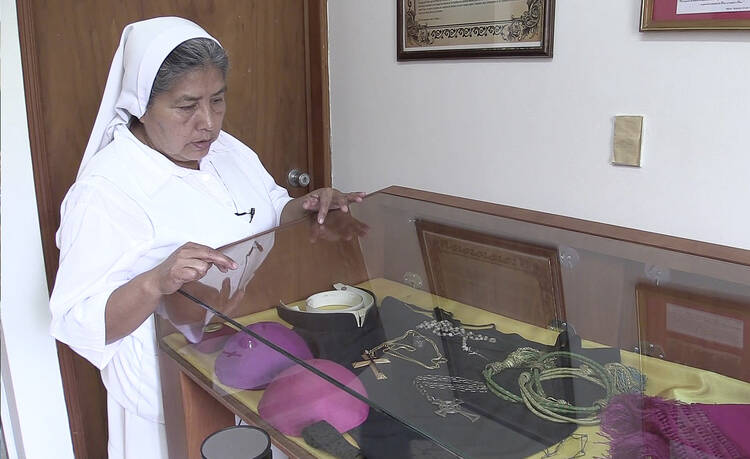When Archbishop Oscar Romero was assassinated on March 24, 1980, the vestments he wore were bathed in blood. After the attack, Carmelite nuns who managed Divine Providence Hospital in El Salvador kept them and other belongings with the greatest possible care. For 35 years, the congregation and the sisters running the hospital have taken care of the relics. Now Archbishop Romero is scheduled to be beatified in San Salvador on May 23 and the government may declare the chapel a National Cultural Heritage site. Sister María Julia García, the Carmelite superior and director of the hospital, worries that this would put the sisters in a very awkward situation because they would have no say in the care of the relics. “We, as the moral owners of these relics, fear that they will be taken away from us and relocated to another place, where they would not be treated with respect,” she said.
Romero’s Relics
Show Comments (
)
Comments are automatically closed two weeks after an article's initial publication. See our comments policy for more.
The latest from america
Archbishop Wenski of Miami and some 25 Knights of Columbus saddled up their motorcycles to pray a rosary at the entrance of Alligator Alcatraz, the migrant detention center recently opened in the Florida Everglades.
The U.S. church will have to contend with “deportation on steroids“ as the Trump administration adds vast new capacity to Immigration and Customs Enforcement.
Pope Leo XIV has extended his vacation at Castel Gandolfo by two days. How does he relax? And what have other popes done with their downtime?
Pope Leo XIV marks 56th anniversary of moon landing with observatory visit and a call to Buzz Aldrin
Pope Leo XIV marked the 56th anniversary of man’s arrival on the moon Sunday with a visit to the Vatican astronomical observatory in Castel Gandolfo and a call to astronaut Buzz Aldrin.








